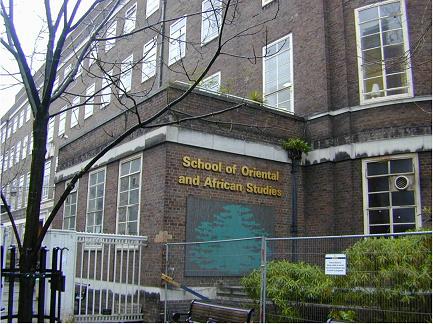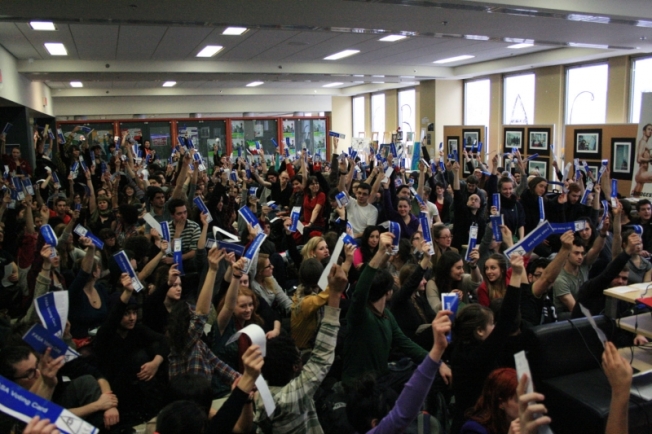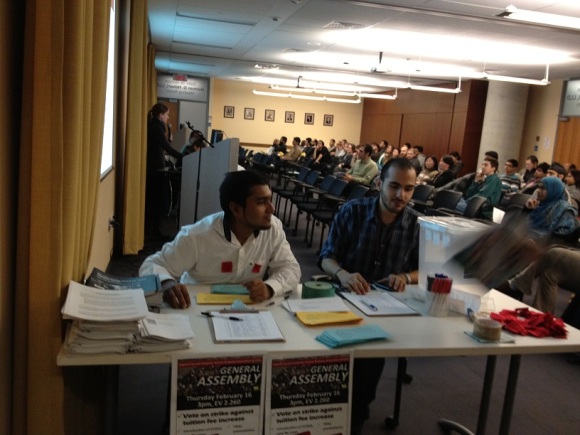Organise2013 will present occasional articles from the archives of departmental organising across the world. In this first instalment, departments renew strike mandates during the unlimited general student strike in Quebec.
COMPILED BY JACOB ROBERTS, DAVID MURPHY & LAURA BEESTON. The Link. Volume 32, Issue 3, March 13, 2012. (pdf here.)
For the last week, The Link has been following the General Assemblies of as many faculty associations as possible. For the full stories on the following, and daily updates, follow @linknewspaper on Twitter, and head to thelinknewspaper.ca online.
Urban Planning Meeting Messy
The Urban Planning General Assembly was a little messier than originally hoped for. According to President Sam Carter-Shamai, people were speaking out of turn, clapping and booing, interrupting speakers, challenging the mediator— who was from the University of Winnipeg, not Concordia—and were generally acting inappropriately.
Carter-Shamai said he chose a moderator from outside the Concordia community because he believed it would be a more neutral solution and avoid any perceived conflicts of interest. Overall, the UPA students voted in favour of the strike, with 59 votes for and 27 opposed. But since that vote, the president has been attacked with criticism.
“I’m trying to do this the best I can,” said Carter-Shamai, who says after running the first GA, he’s confident he can handle a second one much better.
WSSA Sends a Message to the Minister
The Women’s Studies Student Association was the first student association to hold a GA and vote to go on strike in protest of tuition increases. They have successfully boycotted classes for a full week. Prior to the second vote, WSSA executives met with the Simone de Beauvoir Institute faculty to discuss plans moving forward.
It was a meeting WSSA External Executive Gabrielle Bouchard called “magical, wonderful and very, very feminist,” that lead to both student and faculty parties coming to an understanding of each other’s “democratic and contractual realities.”
Following the multi-stakeholder meeting, the Institute also sent Education Minister Line Beauchamp a video on International Women’s Day, calling for a public debate on the social impacts on the hikes.
“The objective […] would be to create a public space for debate on the present and future of postsecondary education,” said SDBI Spokesperson Viviane Namaste in the video, “and specifically to consider how the hikes will affect women.”
They said Beauchamp had an essential role to play in the education debate, and called for her to deliver her position in the public sphere.
The Ministry responded March 8 that they had received the institute’s letter and would follow up.
Sociology and Anthropology
The Sociology and Anthropology Student Union held a general assembly on March 6, ending with a majority vote to begin striking on March 12. The student association represents about 2,000 undergraduates.
Following presentations by the Concordia Student Union’s Advocacy Centre, Graduate Students’ Association VP External Holly Nazar and CSU Councillor Irmak Bahar, 127 students in attendance voted on the proposed strike mandate.
The motion passed, with 101 students voting in favour of an open-ended, one-week renewable strike. Twenty-three students voted against the mandate, and three abstained.
GUSS What? Another Strike!
Environment and geography students voted to maintain hard strike tactics for the next two days in its General Assembly on March 6.
Those tactics include blocking entry to classrooms, not handing any work in, and recommending alternative teaching methods outside of classrooms.
The GA lasted roughly four hours and the vote passed with 64 people for the vote, 32 against, and four abstaining.
The Geography Undergraduate Student Society represents 750 undergraduate students.
“I’m just really happy with the way the process went down. There were 100 people in the room, [it’s] quite a contentious issue and there was no bickering back and forth. Everyone was really respectful,” said GUSS President Andrew Roberts.





